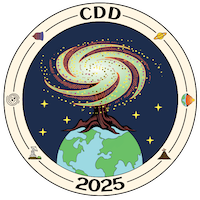Orateur
Description
ADAPT [Accelerate Discoveries (boosting) Astroparticle Physics (analysis) Techniques] is the intent to apply machine learning algorithms onto event data from astroparticle physics experiments, to offer an alternative and faster analysis procedure, compared to the computational intense and lengthy classical state-of-the-art algorithms.
The main focus of the project lies in the possibility to learn a latent space of all events of an experiment in an unsupervised way. In this latent space, each event can be represented trough a self-learned set of important features. It can therefore be used to build a “Foundation” model, that can later be efficiently fine-tuned on a specific regression or classification task. The advantage of this unsupervised approach, with respect to a supervised optimization for a specific task, is that the latent space contains, due to its self-learned nature, event descriptions that are richer in information.
The nature of recorded data in many astroparticle experiments can be best described as the mathematical object of a graph. The natural choice is therefore to use graph neural networks, to analyse these data structures.
Such a model is then trained unsupervised as a masked auto-encoder, yielding the ability to map each node, but also the full graph in a latent space, and by this providing a compressed information representing an intermediate step for further analysis.
The current goal of the project is to identify and separate the signal in the presence of high levels of environmental background, with the aim to extract the final graphs containing only the physical event of interest. The use case presented here is within the KM3NeT experiment.
| Speaker information | PhD 3rd year |
|---|

